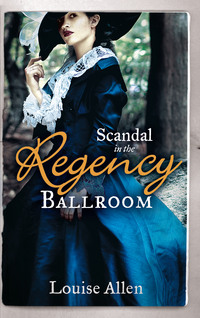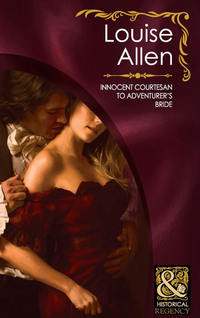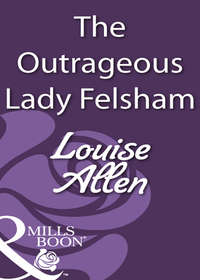
Полная версия
The Earl's Practical Marriage
What was he doing kissing a chance-met lady? His head reminded him firmly that, besides any other considerations, that kind of thing led to consequences which could range from a slapped face to a marriage at the end of a shotgun wielded by a furious father. But there had been a compulsion, a spur-of-the-moment irresistible impulse far louder than the competing voice of common sense.
He’d had no difficulty ignoring the many lures thrown out to him on his way home from Portugal, yet now he had fallen victim to a pair of fine brown eyes. Again, he reminded himself savagely. He appeared to have developed a dangerous partiality for dark brown eyes and, given how much trouble simply smiling at the owner of a fine pair of them had got him into, it was madness to escalate to snatching kisses.
As he watched, a footman hurried out of the elegant house on Laura Place, followed by a grey-haired lady who embraced the passenger almost before she set a foot on the ground. Neither of them looked round as the horse walked past down Great Pulteney Street. The irritable lady with the sense of beauty and the tantalising gaze was safe and he knew where she was. That was quite enough for one day.
Chapter Two
‘Darling Laurel, here you are at last! Welcome to your new home, my dear. I expect you would like to freshen up a little before we have some tea—Nicol, show Lady Laurel and her maid to her rooms—and then we can be cosy and talk.’
Aunt Phoebe, the widowed Lady Cary, spoke as rapidly as ever, Laurel thought. Slightly breathless after her first encounter in years with her mother’s sister, she followed the butler up two flights of stairs. She had been given a suite of rooms, he told her and she found it took up the entire floor—on one side a bedchamber and dressing room overlooking the garden at the back and on the other a sitting room with a view of Laura Place with its fountain in the middle of a railing-encircled patch of grass and shrubs. Behind the sitting room was a bedchamber for Binham, who was pleased to give it a stately nod of approval. Laurel took off her bonnet, gloves and pelisse, washed her hands and face then went back down again, leaving Binham to unpack.
‘Darling, is it all right?’ Phoebe picked up the teapot and began to pour the moment Laurel stepped into the drawing room. ‘I thought that apple green for the hangings in the bedchamber was appealing, but you must change it if you loathe it.’
‘It is delightful. All the rooms are.’ She took the cup and sat down. ‘I am so grateful and I will do my very best to be a good companion for you. You must tell me exactly how you want things done and how you would like me to go on.’
‘Laurel, what nonsense! I do not need a companion, not the kind I give orders to, that is. I am very happy to have your company and to give you a home, but I have more than enough to fill my life without having to take on a companion. What a ghastly thought, it makes me feel ancient. Although I suppose I am not quite a spring chick, although I don’t feel it, at least I do not when I have a new hat or go dancing or... Yes, dear?’
‘But Stepmama said that I could be of some use to you.’ Laurel studied her aunt, who looked younger than her sixty-odd years, highly fashionable and very active and lively indeed. A severe critic might murmur something about mutton dressed as lamb, or Chatterbox!, but that would be unkind, Laurel decided. Her aunt was clearly amiable and well meaning. She certainly was not the elderly invalid Laurel had been expecting. Had this journey been in vain and there was nothing here for her usefully to do and no chance of a new life? ‘She said that this was one place where I might be of some use to someone, in fact.’
‘Have a ginger biscuit. My sister-in-law is an old cat. I cannot imagine what your father, Lord rest him, was thinking of when he married her. How old are you, Laurel dear? Twenty-six soon? And I suppose she tells you that you are on the shelf, simply because your father’s dynastic plotting went awry nine years ago and now you are out of mourning she is too tight-fisted to give you a London Season and let you find a husband for yourself.’ Phoebe snapped a ginger biscuit between small white teeth.
‘I do not look for marriage, Aunt Phoebe. I had the chance, although I did not realise it at the time, and I made a mull of it.’ She and Giles between them. ‘He was in love—’ or, more accurately, in lust ‘—with someone else and I...I made rather a fuss about it.’
That was putting it mildly. She had turned a family crisis into a full-scale district-wide scandal, ruined her own chances and drove Giles into exile in Portugal, of all things. And, inevitably, into disgrace with his father. ‘I expect Papa told you all about it at the time.’
‘Your father sent me an absolute rant of a letter about undutiful daughters, idiot youths and lamentations about the failure of his scheme to join the two estates. I could not make head nor tail of most of it. I was going to invite you to stay with me in town to get away from the fuss and botheration, but then your dear mother died and then my poor Cary and when we were all over the worst of that your father wrote to say he needed you to look after young Jamie... Oh, dear, I knew I should have insisted that you come to me.’
‘Jamie did need me. He was so devastated when Mama died—he was only five. And then Papa married again and... It was all rather difficult. Jamie did not take to Stepmama and she found him difficult to accept. I do not think she ever came to terms with him being illegitimate. I could not understand at first, but now I suppose she thought that if Papa could raise his late cousin’s son, then he might have a tolerant attitude towards infidelity, when of course, it was quite the opposite. He and Mama deplored Cousin Isabella’s actions, but they believed an innocent child should not suffer for them.’
Not many people could, to be fair. It was a good thing Jamie had gone away to sea now he was old enough to be hurt by snubs and chance remarks about his mama, who had run off with her groom and who had died giving birth to their son. ‘It was all too much for a little boy,’ she explained. ‘He needed the stability of someone familiar to care for him. And then with Papa dying a year ago...’
‘He needed you for nine years? After a few months you could surely have employed a governess and then some tutors and freed yourself to live your own life. You could have married, dear.’
‘Jamie needed me. He was—is—very much attached to me,’ Laurel flared, on the defensive. Was this going to be like living at home all over again? Who would she marry when the whispers all around the area were that years ago Lady Laurel had driven away her suitor—a young man much liked in the district—and that her father had decimated her dowry in fury at having his plans thwarted?
‘Oh, bless him. So young to be leaving home to become a midshipman. It must have been a terrible wrench for him, poor little lad.’ Phoebe fumbled for a tiny lace-edged handkerchief and dabbed at her eyes.
‘Yes. Yes, of course it was.’ The ‘poor little lad’ had scrambled up into the gig, all five foot six of lanky fourteen-year-old, his precious new telescope clutched under his arm. He had immediately begun chattering to Sykes, the groom whose son was a second mate on a cutter, about life at sea and his ambitions and his new ship and how well he had done in his midshipman’s examinations.
‘...third in the geometry paper and second in...’ His voice had floated back down the driveway to where his stepmother Dorothy and Laurel, her handkerchief scrunched in her hand and a brave, determined smile on her face so he would not turn around and see her weeping, stood on the steps to wave him goodbye. But Jamie had not turned round, not for a second.
His letter home, sent from Portsmouth just before he boarded his ship, was blotted, scrawled and bubbling with excitement. He’d met some of the other midshipmen—great guns all—and seen the captain, trailing clouds of glory behind him from his last engagement with the French, and as for the ship, at anchor in the bay, well, the Hecate was the finest thing afloat. It was capital not being tied down with boring lessons any more and having all the other fellows to talk to, Jamie wrote before signing his name. And that was the only reference to her.
‘I expect he is homesick and perhaps seasick,’ Laurel said, fixing her smile in place securely. ‘But I am sure he will recover from both soon enough.’
Stepmama had been right. Jamie had not needed her, had not needed her for years. It was she who had used him as a shield behind which she could do more or less as she pleased, provided that did not involve straying more than five miles from home. And now she was not needed at Malden Grange at all. Her stepmother had the domestic situation firmly under control and did not welcome another woman’s finger in her pies—literally or metaphorically. And she had begun to make snide remarks about Laurel’s allowance now Jamie required fitting out and would doubtless need more financial support as he climbed the ladder of his new career.
Her second cousin Anthony, now Earl of Palgrave, had been most gracious in allowing them to remain at home and not requiring them to move out to the Dower House immediately. He apparently enjoyed living at the original seat of the earldom, Palgrave Castle, on the other side of the county, but surely he would marry soon and might well want to move his bride into the more modern and convenient Malden Grange that her father had always used.
‘I only want to be of use,’ she had said and her stepmother had pointed out tartly that no help was needed and that if she thought she was going to turn into one of those do-gooding spinsters, setting up schools for dirty orphans or homes for fallen women, then she was not doing it at Dorothy’s expense or from under her roof.
At which point it had occurred to Stepmama that Laurel had a widowed aunt in Bath. Bath was full of old maids, widows and invalids, therefore Aunt Phoebe, who was certainly widowed, was probably also an invalid. Laurel could go and be useful looking after her, she had declared. Lady Cary could well afford a companion, as it was common knowledge that both her father and her husband had left her well provided for.
‘And I do not want a husband,’ Laurel added firmly. She was too old and cynical now to be starry-eyed about men and she was approaching the age when no one would expect her to find a spouse. She would be that creature of pity, a failure, an unmarried woman, and she would be happy to be so, she told herself. Her judgement of character had proved disastrously faulty, now she had no wish to risk her heart and her future happiness. She had managed to hide away while she was at the dangerous age when everyone expected her to marry—now, surely, at almost twenty-six she was safe from matchmakers?
‘Really, dear? You do not want to marry? But you are so pretty and intelligent and eligible: it is such a waste. I will not despair and I will be very glad to have your company, of course, until some sensible man comes along and snaps you up.’ She leaned forward and patted Laurel’s hand. ‘Your home is here, dear, for as long as you want it.’
‘Thank you,’ Laurel said with some feeling. It was reassuring to have someone who wanted her. ‘But I cannot live off your charity, Aunt Phoebe. If you required a companion, then of course, board and lodging in return would be fair, I suppose. But I do have my allowance from Papa’s estate and what Mama left me, so I can pay my way and share expenses.’
‘Bless you, child.’ Phoebe waved a beringed hand at the cake stand. ‘And eat, Laurel, you look ready to fade away.’ She cocked her head to one side and Laurel tried to return the beady look calmly. ‘You are too pale and with that dark brown hair and eyes you need more colour in your cheeks. I expect a year in mourning has not helped matters. I have no children,’ she added with an abrupt change of subject. ‘My poor dear Cary always felt that very much, but he never reproached me. You, my dear, are as welcome here as my own daughter would have been.’
‘I am? But, Aunt...Phoebe, I do not know what to say. Except, if you are certain, thank you. I hardly know—’ It was impossibly good news. Welcome, a new home where, it seemed, she could be free to be herself. Whoever that was.
‘There is no need to thank me,’ Phoebe said with her sweet smile. ‘I am being a perfectly selfish creature about this. I have no expectation of keeping you long, whatever you say—there are too many men in Bath with eyes in their heads and good taste for that!—but I will very much enjoy your company until the right one comes along and finds you.’
* * *
‘Our best suite, my lord.’ The proprietor of the Christopher Hotel bowed Giles Redmond, Earl of Revesby, into a pleasant sitting room overlooking the High Street. A glance to the right through the wide sash windows revealed the Abbey, basking golden in the early evening light. To the left the bustle of the High Street was beginning to calm down.
‘Thank you. This will do very well. Have bathwater sent up directly, if you please.’
‘Certainly, my lord. Your lordship is without a valet? I can send a man to assist with unpacking. Your heavy luggage came with the carrier this morning and has been brought up.’
‘My man will be arriving shortly.’ Dryden was with Bridge, his groom, bringing the curricle and team on in easy stages from Marlborough where they had all spent the previous night.
The man bowed himself out leaving Giles to contemplate the unfamiliar English street scene below. The family had always stayed at the Royal York Hotel, higher in the city on George Street, but now that felt too much like coming to Bath as a child. Then he had been with his father on their visits to Grandmama on her annual pilgrimage to take the waters.
He would not have found his father at the Royal York on this occasion in any case. Giles’s letter informing the Marquess that he was returning to England had been countered by a reply from his sire telling him that he was in Bath in a greatly decayed state of health. It was not quite a summons to a deathbed, but was not far short of that in tone. The Marquess was residing at exclusive lodgings where invalids of the highest rank could be accommodated, so presumably he genuinely was unwell, but from the vigour of the handwriting and the forceful slash of the signature it seemed highly unlikely that his demanding parent was being measured for his coffin yet.
It would be childish to ignore the summons and continue with his plans for establishing himself in London before returning to Thorne Hall, Giles had thought.
Nine years ago he had left home and shaken the dust of England off his boots with the impetus of a monumental row at his back. Since then he had managed to live his life to his own quiet satisfaction and greatly to his father’s displeasure. Gradually the anger had melted into grudging acceptance and, now Giles was ready to come back to England, a strong hint of welcome.
Life as a civilian during the Peninsular War had been stimulating, especially when he had found himself involved in intelligence gathering, but peacetime Portugal was less appealing, especially in the final few months after he had encountered the very lovely Beatriz do Cardosa, daughter of Dom Frederico do Cardosa, high-placed diplomat and distant relative of the royal family. Beatriz, spoilt, indulged, sheltered and innocent, had been betrothed to a minor princeling from the age of five.
Not that he had known this until he had made the mistake of smiling at her, charmed by her beauty, mesmerised by eyes the colour of dark chocolate. Beatriz had smiled back across the dinner table and from then on he had found himself encountering her everywhere he went.
She was rather young, he discovered, and not the most intellectual of young ladies. In fact, a lovely little peahen. But she was pretty and she was enjoying trying out her powers by flirting with him, which was all highly enjoyable until the ghastly evening when they had encountered each other in a temporarily deserted conservatory and she had flung herself on to his chest, weeping.
Giles, who was, as he told himself bitterly afterwards, neither a saint nor a eunuch, had gathered her efficiently into his arms, patted those parts that he could with propriety and murmured soothing nonsense while mentally wincing at the damage to the shoulder of his evening coat.
Beatriz, it turned out, had just been introduced for the first time to the princeling she was destined to marry. He was, according to the sobbing Beatriz, old—thirty-five—fat, short and ugly—plump, medium height and somewhat plain, as Giles discovered later—and had fat, wet lips. Untrue, although Giles was not inclined to approach very close to check that.
He had produced a large, clean handkerchief and had done his best to calm her down, with such success that when Dom Frederico had entered the conservatory there was no sign of tears and his grateful daughter had both arms around the neck of Lord Revesby.
In the course of the painful subsequent discussion Giles could only give thanks for his recent training in diplomacy. Somehow he had managed to convince Dom Frederico that he had no designs on his daughter, that Beatriz was quite innocent of any misbehaviour, and that he had found her weeping and had been foolish enough to offer comfort rather than seeking out her duenna. When he subsequently met the princeling that Beatriz was destined for he could sympathise with her tears, for the man was definitely self-important and not very intelligent, but that was the fate of well-connected young ladies, to marry where their family’s interests lay.
It was time to reach an accommodation with his ailing father, if that was possible without them strangling each other within days. And it was time to take over what parts of the business of the marquessate that his father was inclined to relinquish. To do that he must settle down. He needed to find a wife, he knew, and, as he was not as demanding as a plump Portuguese princeling, English society must be awash with suitable young ladies only too happy to wed his title.
A flicker of blue skirts caught his attention for a moment, but of course it was not the mystery lady from Laura Place. The woman passing on the other side of the street was a small and buxom blonde in a highly fashionable ensemble and the short-tempered passenger in the chaise had been taller. When she had emerged from beneath that frightful veil she had been dark haired and dark eyed, like Beatriz, which had taken him aback for a second.
The rest of the encounter was a blur and Giles had had his eyes closed for most of that strange, impulsive kiss. He could not account for it. Flirting with Beatriz had been entertaining, but he had never felt the urge to do anything as rash as kiss her. Not that he had lived like a monk for the past few years, but occasional discreet liaisons with attractive widows had not involved snatched kisses with total strangers either.
The brunette in the chaise had been wearing a blue walking dress, plain but good and not unfashionable. A very superior governess, perhaps. He did not envy her students if they tried her patience. She had a tightly reined temper and that momentary loss of control had surely been as unfamiliar to her as it was unexpected for him. And yet there had been something about her, something familiar, which was unlikely. He knew no governesses, nor did he have to tolerate ladies of uncertain temper. Why he hadn’t had his face slapped for his presumption on the hilltop he had no idea. Possibly she had been completely taken aback, because she was most certainly not a lady given to promiscuous kissing, that was plain enough.
Chapter Three
He would call at Laura Place tomorrow, Giles thought, moving back from the window as he shrugged out of his comfortable old riding coat.
But, no, damn it, he realised, one hand at the knot of his neckcloth. I can’t very well do that without revealing that I followed her home, which might be enough to alarm any right-thinking female.
He unwound the now-crumpled muslin from around his neck as he considered the problem. This would take some thought if he were to satisfy his mysteriously insistent curiosity about who she was and why kissing her had made him feel he had...had come home, of all the bizarre impressions. But he could manage it with a discreet enquiry of Bath’s Master of Ceremonies at the Assembly Rooms who would have all the well-bred residents and visitors in the city at his fingertips. After all, how difficult could securing an introduction to the Laura Place ladies be, compared to identifying French spies in the Portuguese court or riding through Spain behind enemy lines?
A knock at the door heralded the arrival of porters with cans of hot water and, on their heels, Dryden, pin neat as usual, despite a day spent in an open vehicle. ‘My apologies for my tardiness, my lord. There was a tree across the road at Cherhill, as no doubt you encountered for yourself. I will lay out your evening clothes directly.’
‘I will be dining here in my room and not going out, Dryden. A clean shirt and my banyan will do.’ He had been in the country for only two weeks, but the volume of correspondence was threatening to take over his life. He would need a secretary soon, but for now he would have to tackle the most urgent matters himself. ‘However, I will need your very best work tomorrow morning, Dryden.’
‘The Marquess? Of course, my lord. The new waistcoat, I presume?’
Father, secretary, correspondence, Laura Place ladies.
Giles made a mental list as he began to strip off his dusty riding clothes. Not the most thrilling of programmes and, in places, downright difficult, but time enough to discover how to make England interesting.
He added, Clubs, mistress, decide where to live. Then, A wife.
Giles grimaced. He was not looking forward to the Marriage Mart.
* * *
‘I am certain that taking the waters does me a great deal of good, you know.’ Aunt Phoebe lowered her voice and murmured, ‘It keeps one so regular! And I meet all my friends and acquaintances here every day.’ She fluttered her fingers at a pair of mature ladies on the far side of the room. ‘The Misses Prescott. And of course it is the perfect excuse for seeing who has come to town and for exchanging the latest news. I come almost every morning.’
Oh, dear, Laurel thought. That might become rather tedious.
But she smiled and nodded politely to the Misses Prescott and reminded herself that a little boring routine was well worthwhile for such a change of scene and her aunt’s kindness.
Phoebe settled herself at one of the little tables in the Pump Room and signalled to a waiter for two glasses of the water. ‘And you may save yourself the effort of tactfully not telling me that I am a shallow and frivolous creature, for I have a full hand of excuses,’ she said, straightening her bonnet. ‘And the strongest is that this is quite the best way of judging the new company before one finds oneself on nodding terms with some vulgarian or a crashing bore.
‘Look at that woman, for example,’ she added with a discreet gesture towards a slender brunette accompanied by a maid and a young woman who might be her daughter. ‘I saw her yesterday and thought what style and elegance she has. But she treats her unfortunate maid as though the girl is a drudge, and a foolish one at that, however charming and caressing her manner is to her daughter and other ladies.’
Laurel took an incautious gulp of water and almost spluttered it back out again. ‘This is disgusting,’ she whispered.
‘I know,’ Phoebe agreed. ‘But it does one so much good. Apparently it is full of the most wonderful minerals and salts. You should drink a glass a day.’
The benefit she derived was probably from the exercise involved in walking to the Pump Room and back daily and the stimulation of seeing all the new arrivals, Laurel decided, but kept the thought to herself.
Phoebe was still looking around the room, nodding greetings to old acquaintances. She gave Laurel a discreet nudge in the ribs. ‘Oh, my goodness, now there is a handsome creature just come in! And half the age of most of the gentlemen.’








